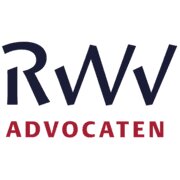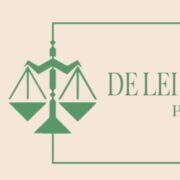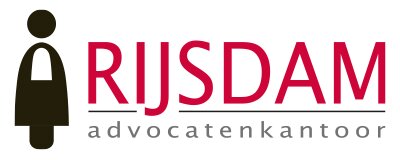Best Collaborative Law Lawyers in Leiden
Share your needs with us, get contacted by law firms.
Free. Takes 2 min.
Free Guide to Hiring a Family Lawyer
List of the best lawyers in Leiden, Netherlands
About Collaborative Law in Leiden, Netherlands
Collaborative Law is an innovative legal approach increasingly recognized in Leiden, Netherlands, especially for resolving family law disputes such as divorces, child custody, and the division of assets. It focuses on cooperation between parties instead of adversarial courtroom battles. Each party retains their own specially trained collaborative lawyer, but all commit to resolving issues through open conversation, transparency, and mutual respect. The process often involves other neutral professionals, like financial advisors or psychologists, to ensure that solutions meet the holistic needs of those involved. Leiden has seen a growing adoption of Collaborative Law, making it a forward-thinking choice for those aiming to settle legal disputes amicably.
Why You May Need a Lawyer
People in Leiden often consult a lawyer specializing in Collaborative Law when facing family disputes that could escalate into contentious legal proceedings. Some common situations include:
- Separation or divorce where both parties wish to avoid court litigation
- Child custody and parenting agreements that require sensitive negotiation
- Division of joint property and financial arrangements after a breakup
- Modifications of previous family law agreements
- Conflicts in family-owned businesses or inheritances
Collaborative Law lawyers help facilitate open discussion, guiding both parties toward fair solutions while promoting respectful communication. Their expertise is essential to ensure legal compliance and to safeguard the interests of all involved.
Local Laws Overview
Collaborative Law in Leiden operates within the broader context of Dutch civil law, especially the sections concerning family law and mediation procedures. Key local aspects include:
- Collaborative Law practitioners must have specialized training recognized by Dutch professional organizations.
- The process is strictly voluntary. Both parties and their lawyers must sign a participation agreement outlining the principles of transparency and withdrawal from litigation if discussions fail.
- Information shared during the process cannot be used in court if collaboration fails, ensuring open and honest discussion.
- Collaborative Law does not replace statutory obligations in matters like parenting plans or spousal support but helps parties to reach compliant agreements outside the court.
- Leiden courts support out-of-court settlements and will generally ratify agreements reached collaboratively so long as they comply with Dutch law and protect the interests of children.
Frequently Asked Questions
What is the main difference between Collaborative Law and traditional litigation?
Collaborative Law involves negotiation and cooperation to find mutually acceptable solutions without going to court, while litigation involves a judge making decisions for the parties involved.
Is Collaborative Law legally recognized in Leiden?
Yes, Collaborative Law is recognized in Leiden and across the Netherlands as a valid dispute resolution method, provided the process meets local legal requirements.
Who can participate in the Collaborative Law process?
Any individuals in a legal dispute, such as divorcing couples or separating parents, can participate if they agree to resolve issues collaboratively and transparently.
What role do lawyers play in Collaborative Law?
Lawyers guide, advise, and ensure each party understands their rights. They facilitate constructive dialogue and negotiate on behalf of their clients with an aim to reach a fair settlement.
Are there other professionals involved in the process?
Often, yes. Financial specialists, child psychologists, or mediators may be brought in as neutral third parties to address specific aspects, like asset division or children's wellbeing.
What happens if parties cannot reach an agreement?
If agreement cannot be reached, all participating lawyers and professionals must withdraw. The parties may then proceed to court with new legal representation.
Will the agreements reached be legally binding?
Yes, once both parties agree and submit their settlement to the court, it becomes legally binding, provided it meets Dutch legal standards.
How long does a Collaborative Law process typically take?
Timelines vary, but collaborative cases often conclude faster than litigation, as the process is flexible and tailored to the parties' needs.
Is the process confidential?
Yes, everything discussed in Collaborative Law proceedings remains confidential and cannot be used as evidence in court if negotiations break down.
How do I choose a lawyer for Collaborative Law in Leiden?
Seek a lawyer trained and certified in Collaborative Law with experience in the relevant area, such as family or business disputes. Consider recommendations and check for membership in national Collaborative Law associations.
Additional Resources
If you need more information or support regarding Collaborative Law in Leiden, these resources may help:
- Vereniging Collaborative Professionals (Dutch Association of Collaborative Professionals)
- Raad voor Rechtsbijstand (Legal Aid Board)
- De Rechtspraak (Dutch Judiciary) - for recognizing collaborative settlements
- The Dutch Bar Association (Nederlandse Orde van Advocaten) for lawyer directories
- Local mediation centers in Leiden that offer information on collaborative processes
Next Steps
If you believe Collaborative Law may be right for your situation in Leiden, consider the following steps:
- Consult with a qualified Collaborative Law lawyer to assess whether your case is suitable for this process.
- Discuss the process and benefits with the other party to determine mutual willingness to participate.
- Request information about participation agreements and the specific professionals who may be involved.
- Prepare relevant documents and think about your goals to approach discussions constructively.
- Stay open to professional guidance, and remember that the objective is a fair, sustainable solution for all involved.
Engaging early with a legal professional experienced in Collaborative Law in Leiden can help you understand your options and move forward with confidence.
Lawzana helps you find the best lawyers and law firms in Leiden through a curated and pre-screened list of qualified legal professionals. Our platform offers rankings and detailed profiles of attorneys and law firms, allowing you to compare based on practice areas, including Collaborative Law, experience, and client feedback.
Each profile includes a description of the firm's areas of practice, client reviews, team members and partners, year of establishment, spoken languages, office locations, contact information, social media presence, and any published articles or resources. Most firms on our platform speak English and are experienced in both local and international legal matters.
Get a quote from top-rated law firms in Leiden, Netherlands — quickly, securely, and without unnecessary hassle.
Disclaimer:
The information provided on this page is for general informational purposes only and does not constitute legal advice. While we strive to ensure the accuracy and relevance of the content, legal information may change over time, and interpretations of the law can vary. You should always consult with a qualified legal professional for advice specific to your situation.
We disclaim all liability for actions taken or not taken based on the content of this page. If you believe any information is incorrect or outdated, please contact us, and we will review and update it where appropriate.













